It is the single genre that is wholly American; even though other countries have made their own Westerns, the American Western remains the purest form of the genre. The Western is part of the culture of the United States, a part of their history, of the building of a nation. As the nation was bound together by two silver bands called the railroad, civilization came with it, though it did take time. Hard men settling in a harsh landscape, at war with the wilderness, the natives and themselves as many took the right to right, just as many went wrong. Life was cheap, justice was dealt out with a gun, it was a hard time to be alive.
The American West history lasted just thirty-five years, but the amount of history crammed into the time is remarkable. From Boot Hill to Cheyenne to Deadwood to Tombstone, lives were lived and lost, men and women became the stuff of legend. An array of characters highlighted the history, with great stories exploring the heroes, often elevating it to mythical proportions. Billy the Kid, Jesse James, Wild Bill Hickcock, Wyatt Earp, Calamity Jane, Buffalo Bill are just some the names that became legends from the Old West.
Hollywood began exploring the Old West as it was dying, the first great western being Edwin S. Porter’s ‘The Great Train Robbery’ (1902) which was a twelve-minute short, a by-the-book text-book on how to rob a train. During the silent era, Wyatt Earp was an adviser on movies, bringing an authenticity to the films that was remarkable. Westerns did not catch on with audiences until the late thirties, being popular as serial films through the decade, Tom Mix being the biggest star. Gene Autry was the singing cowboy of the thirties, but it was an unknown actor named John Wayne who would become the genre’s greatest star, working with legendary director John Ford.
Ford was the first filmmaker to take his camera and crew outside to make a Western, heading to Monument Valley where the rugged terrain and towering rock peaks dwarfed the actors, making clear the accomplishment of having tamed the country. With ‘Stagecoach’ (1939), the western became an art form and box office, and Wayne would become a major star for the next forty years. Most of the films he starred in were Westerns—three are on this list—and he became the poster boy of the American Western.
The greatest of them are often dark tales of angry men churning with turbulent emotions, doing things that will haunt them for the rest of their lives. The central theme of the Western tends to be one of these: man vs man, man vs the landscape and man vs himself. The best of them manage to bring all these three together and in their collision, art is born. With all that said, here’s the list of top western movies ever made. You can stream some of these best western movies on Hulu or Amazon Prime.
15. Django Unchained (2012)
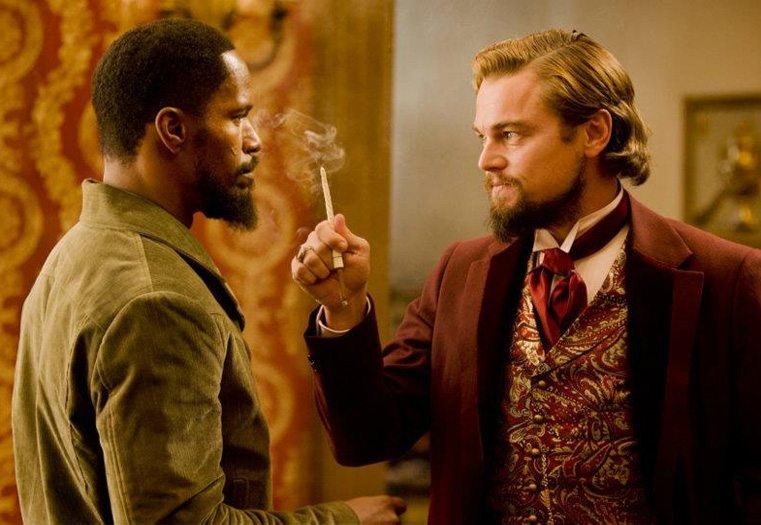
I suppose it was only a matter of time before Tarantino tackled this genre and when he did, he did so with gusto, perversity, violence, racism and wild dialogue. With an array of terrific characters, he gives us a western that is also a statement on slavery and the Civil War, with outstanding performances from Jamie Foxx, Christoph Waltz, Leonardo DiCaprio, and best of all Samuel L. Jackson as the treacherous house slave. Violence erupts without warning, the body count piles, and the film entertains thoroughly.
Read More: Best Book to Movie Adaptations of All Time
14. The Three Burials of Melquaides Estrada (2007)
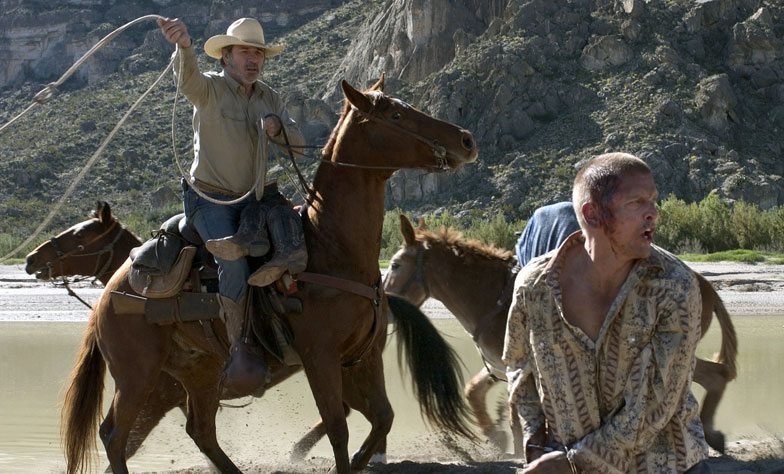
Tommy Lee Jones won Best Actor at Cannes for this self directed modern western about loyalty among friends. When his good friend, a Mexican immigrant, is killed by accident by a border patrol guard, Jones kidnaps the young man and demands he take the dead man back to Mexico for a proper burial in his homeland. Barry Pepper goes through the gamut of emotions as the terrified border guard, expecting to be killed at any moment. Jones is heartbreaking as a truly good friend who just wants justice of some sort for his dead friend.
Read More: Best James Bond Villains of All Time
13. 3:10 to Yuma (2007)
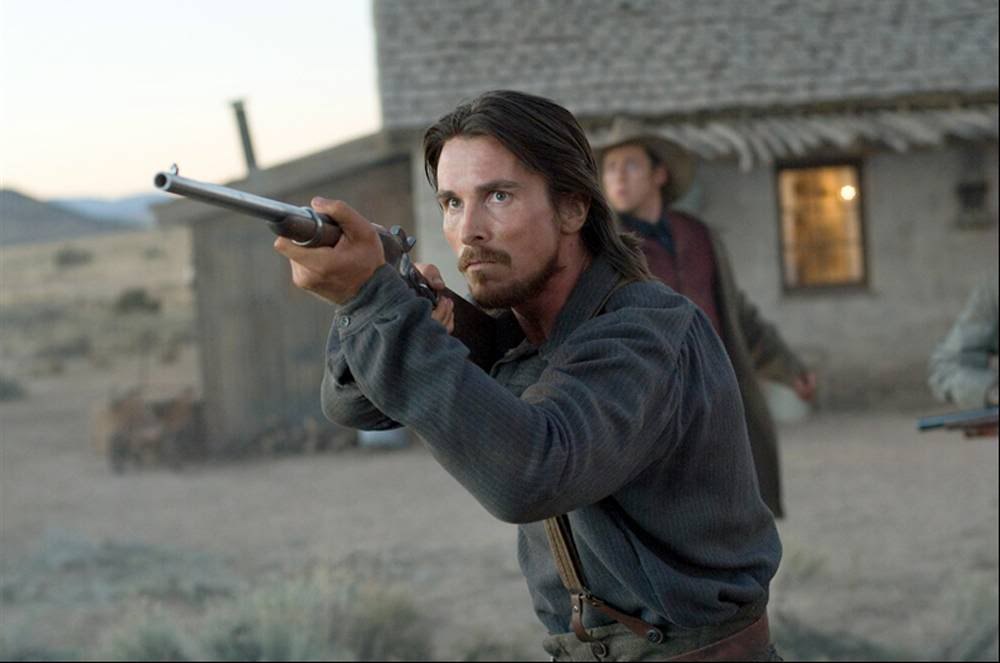
James Mangold directed this remake of the classic western, elevating it to a higher status by virtue of the performances of Christian Bale as the crippled father trying to do the right thing, Russell Crowe as the leader of a gang of dangerous outlaws and Ben Foster as the mist loyal of those outlaws and dangerously psychotic. The film is wildly entertaining, with strong performances that elevate the paper thin script to a new level.
Read More: Worst Movie Sequels of All Time
12. The Shootist (1976)
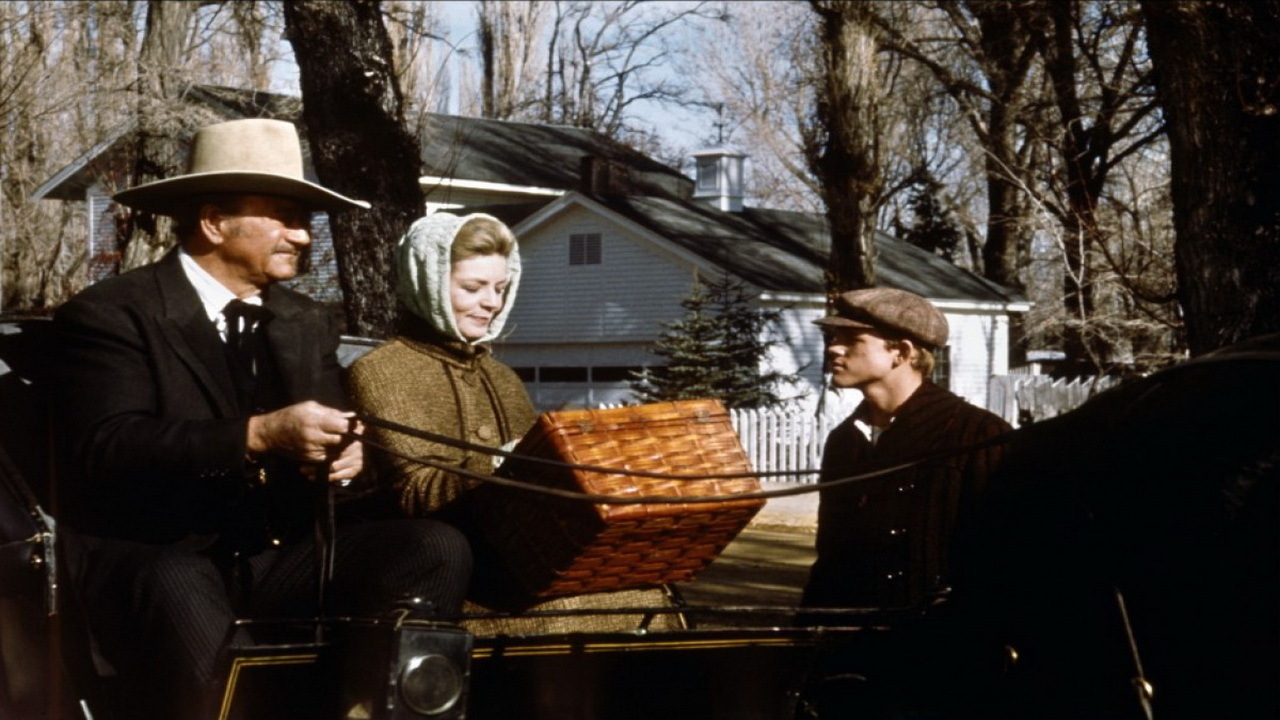
This autumnal, nostalgic film explores the life of an aging gunfighter dying of cancer in 1901, at a time when the Old West itself was dying as it became civilized. John Wayne, in his last film performance and one of his best, is haunting as JB Books, a former gunfighter dying a horrible death at a time when very little was known about the disease or treating it. He comes to town to see a doctor he trusts and decides he does not wish to die the death described. “I am a dying man afraid of the dark”, he confesses to his land lady, portrayed with lovely charm by Lauren Bacall. Beautifully directed by Don Seigel, this was one of the last great Westerns before the quality of the genre deteriorated.
Read More: Best Food Movies of All Time
11. Open Range (2003)

Kevin Costner directed this fine epic that contains perhaps the finest and most realistic gunfight on film; the climax of the picture is a hell of violence. Costner, who won an Oscar for Best Director for ‘Dances with Wolves’ (1990) surpasses his work on that fine film with this intense and authentic Western. Costner is a former gunslinger now working quietly as a ranch hand for a free grazing operation run by an old cowboy, Spearman (Robert Duvall). When one of their own is killed, they go toe-to-toe with the corrupt land baron who holds the town in a grip of terror. Duvall is superb as Spearman, but it is Costner who gives the film its dark edge and power as the gunfighter.
Read More: Best Female Action Movies of All Time
10. High Noon (1952)
![]()
Clocks populate this taut, tight Western, which won Gary Cooper an Academy Award for Best Actor. Time is important. The film opens one morning in a small western town where we learn that a group of killers are coming on the noon train to take one of their own back, and are ready to kill anyone who stands in the way. Unnerved, just married Marshall Will Kane (Cooper) moves about the town for ninety minutes looking for help to stand alongside him when they arrive. But no one will; he is alone. The tension is built superbly by the presence of clocks, time pieces, as we watch the minutes slip past, that noon train on its way bringing potential doom. Fred Zinnemann directed the film — the finest of his career.
Read More: Best Steampunk Movies of All Time
9. Butch Cassidy And the Sundance Kid (1969)
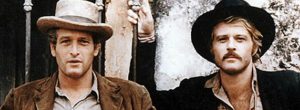
In the early 1900s Wyoming, Butch Cassidy and the Sundance Kid are the leaders of a band of outlaws. After a train robbery goes wrong, they find themselves on the run with a posse hard on their heals. They escape to Bolivia but are tracked down by their white-hatted nemesis who surrounds them in a barn which leads to one of the best gun shootouts in movie history. It is counted among the best Westerns ever made and has all the classic elements of a truly great western movie.
Read More: Best Movies About Porn Industry
8. The Assassination of Jesse James by the Coward Robert Ford (2007)

A remarkably intense, sparse film about the strange relationship between the infamous outlaw Jesse James, portrayed with unpredictable intensity and danger by Brad Pitt, and Robert Ford, his eventual killer, brilliantly played by Casey Affleck. “I don’t know whether you want to be like me, or be me”, says a perplexed Jesse to the young man who worships him but knows his greatest chance at fame is to kill him. Affleck steals the show in this beautifully melancholic film directed by Andrew Dominick — a study of fame achieved, one as an anti-hero, and then hated for being his killer.
Read More: Best Movie Proposals of All Time
7. True Grit (2010)

The Coen Brothers made a surprising decision to remake the John Wayne classic, going back to the Charles Portis book, casting Jeff Bridges as Rooster Cogburn and newcomer Hailee Stienfeld as Mattie Ross. A young girl hires a rough old drunken Marshall to find her father’s killer and sets off with him to find the man. Bridges grounds the film, giving it a realism that strips away the mysticism of the first. But the film belongs to Stienfeld, who is a revelation and deserved to win an Oscar. Bridges should have won too, for his fearless Cogburn, and that glorious cinematography was also equally deserving. The Wayne version is terrific, reaching mythical levels, but this is a bonafide masterpiece.
Read More: Most Mind Blowing Movies of All Time
6. Red River (1948)

Think Mutiny on the Bounty in the west on a cattle drive, when the herd is seized from the tough task master Thomas Dunson (John Wayne) by his adopted son, Matt (Montgomery Clift). The intense chemistry between the two is remarkable because they genuinely detested each other. Wayne gives a towering performance as Dunson, the first truly great performance of his career, while Clift matches him as Matt, a fair-minded young man horrified at his adopted father’s treatment of those working for him.
Read More: Movies That Got Banned in Several Countries
5. Shane (1953)

This is a magnificent film about hero-worship in the Old West – what was real, and when it began to die. The language of cinema plays an enormous role in the film, directed with subtle genius by George Stevens, arguably his greatest work. Into the hard lives of the settlers rides Shane, seemingly descending from the mountains, and he will become a defender for the settlers trying to forge a life in the tough wilderness. When a land baron attempts to bull them off their land by calling in a gunfighter, Shane reveals himself to be a gunfighter as well. Alan Ladd is excellent as the gunfighter; Van Heflin and Jean Arthur are superb as the settlers he befriends and so is young Brandon De Wilde, through whose eyes the story is told. Their final scene together is heartbreaking, with so many hard truths coming to light. Shot on location, the Oscar winning cinematography is breathtaking. Stunner!
Read More: Best Black Movies of All Time
4. Rio Bravo (1959)
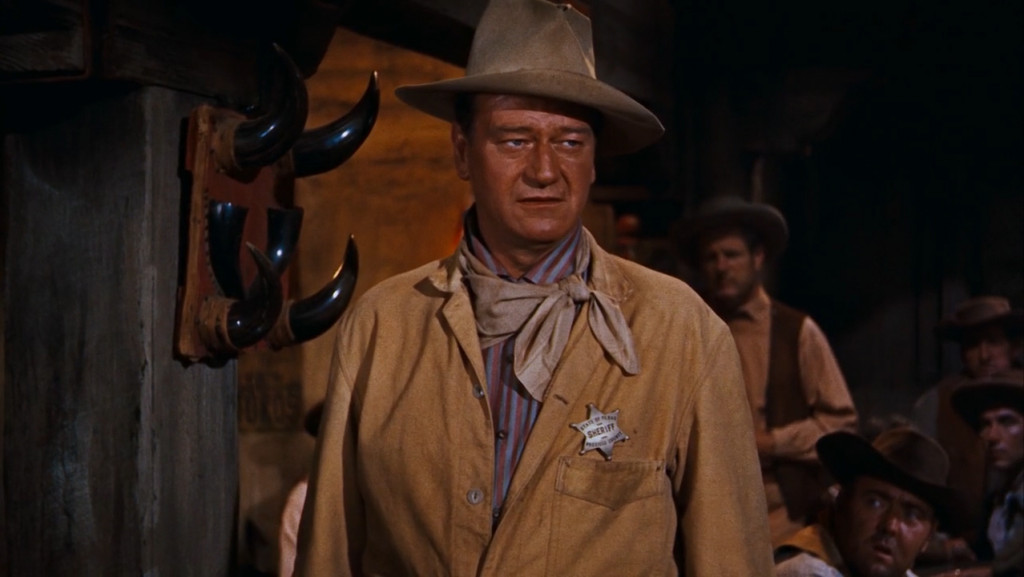
The first great formula Western directed by Howard Hawks, the story of this film is deceptive in its simplicity, some of which it borrows liberally from ‘High Noon’ (1952), a film Wayne detested. He is Marshall Chance, who learns that the family of a killer is coming to break him out of the jail in which he had placed him. With a tough old timer, Stumpy (Walter Brennan), the town drunk (Dean Martin) and a hotshot kid with a fast gun (Ricky Nelson) to help him, it is up to Chance to protect the town and hold his prisoner. Seems like a classic good guys versus the bad guys, but look deeper. There is a great deal of redemption at work here and Hawks, a master, brings out brilliant performances from his cast, and Wayne, Martin and Brennan shine. The characters bump beautifully off one another, and their chemistry defines the film.
Read More: Movies That Might Make You Sick
3. Unforgiven (1992)
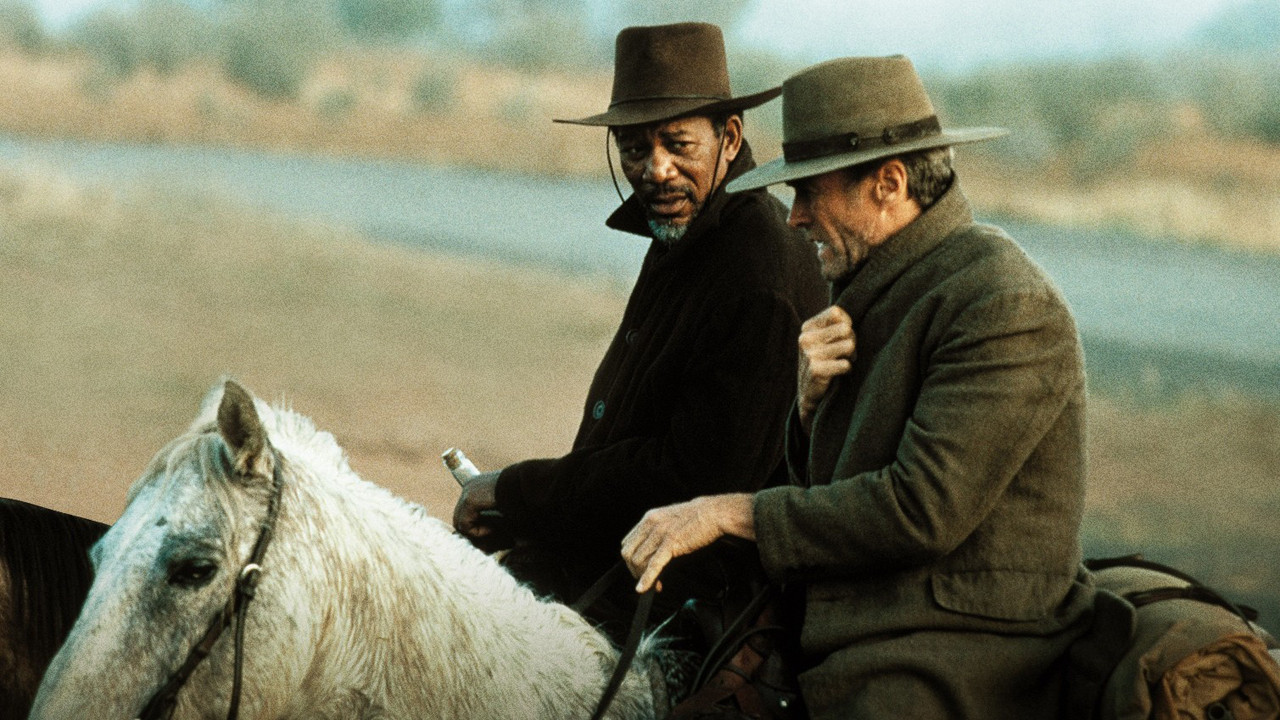
The darkest and finest film of Clint Eastwood‘s career, he first read ‘Unforgiven’ in the eighties but knew he was neither old enough to portray the lead role, nor mature enough as a director to helm the film. Ten years later, he was ready. There are consequences to killing; a man wears the heads of the men he has killed like ghosts around his waist, they are always with him haunting him for the rest of his days. No one knows this better than Will Munney, a one time vicious outlaw, who traded in his gun for a pig farm when he fell in love. Now a widower with two children, he wants for them a better life, so he straps on the gun to go collect a bounty set on two men who cut up a prostitute.
Munney and his partner, Ned (Morgan Freeman) run afoul of the local marshal, the sadistic Little Bill (Gene Hackman) who enjoys torturing his prisoners for it brings him pleasure, and he takes every chance to make their lives hell. Munney will live up to his reputation as a dark avenging angel when Ned is murdered. The film won the Academy Awards for Best Picture, Best Director and Best Supporting Actor (Hackman) and is, without a shadow of a doubt, a masterpiece.
Read More: Best Breakup Movies of All Time
2. The Good, the Bad and the Ugly (1966)
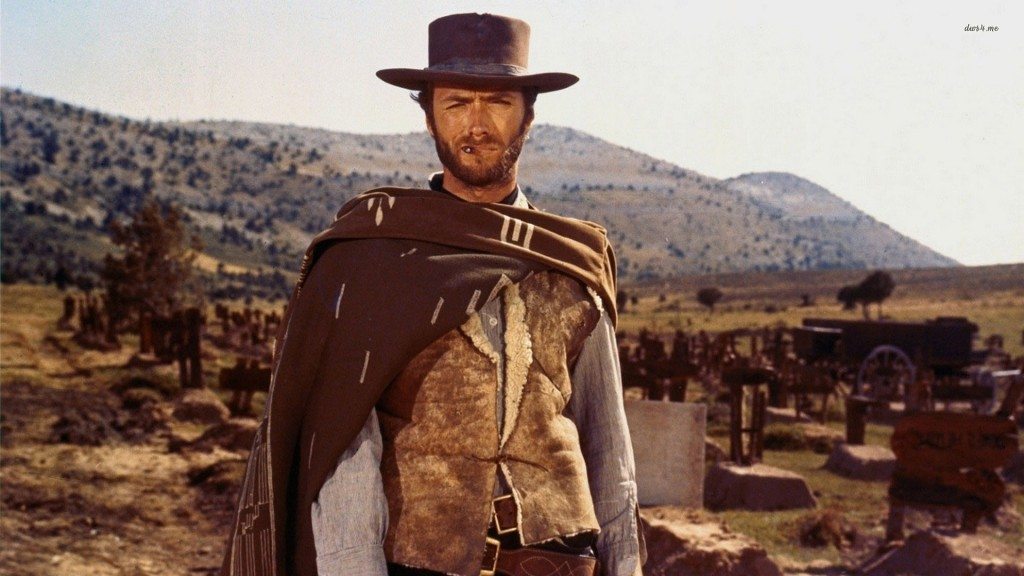
Entrancing characters played by legendary actors, unbridled, brutal gunslinging action, hooking music and intense cinematography – the third part of the ‘Dollars’ Trilogy, said to be the birth of spaghetti westerns, is indulgent, captivating, entertaining cinema at its best. Blondie or No Name (The Good), a professional gunslinger and Tuco (The Ugly), a wanted outlaw, form an unwilling allegiance when they each find out an important detail about a stash of gold hidden by a fugitive confederate, who Angel Eyes (The Bad), a hitman, is contracted to kill. The journey of the trio forms the crux of a riveting plot which ends in a classic western-style stare down.
Clint Eastwood as Blondie is the image of machismo; Lee Van Cleef as Angel Eyes is evil personified; and Eli Wallach as Tuco adds a character complexity of impulse and rage to the simpler yet more showy Good Vs Evil acts of the two bigger stars. But the reins are forever in director Sergio Leone’s hands – he uses sprawling long shots and intense close-up cinematography as required to create a tension in the proceedings. Quentin Tarantino, one of the greatest exponents of the modern Western, once called this one “the best-directed film in the world”.
Read More: Best Movie Theaters in the World
1. The Searchers (1956)

John Ford, the great visual poet of American cinema, did his finest work with this darkly powerful film that features John Wayne delivering his greatest performance. When his brother’s family is slaughtered by vicious Indians, and his two nieces taken away, Ethan (Wayne) goes after them for nearly a decade across the wilderness to bring them back. Yet on the journey, we come to understand that Ethan has no interest in bringing Debbie home, instead he will kill her for being defiled by the Indians. Face to face with his niece, with the last of his family, Ethan cannot kill her, instead he lifts her high over his head as he did when she was a child and then sweeps her into his arms whispering, “Let’s go home, Debbie.”
Seething with a deep hatred for the native Americans, Ethan is the most complex character Wayne has ever portrayed. With ice cold eyes filled with a deep burning rage, his towering performance drives the film and provides the movie its dark edge. Ethan is a character we feared and even disliked. Simmering with fury, Wayne is nothing less than astonishing in this stunning film, still brilliant, sixty one years later.
Read More: Best Real Time Movies of All Time

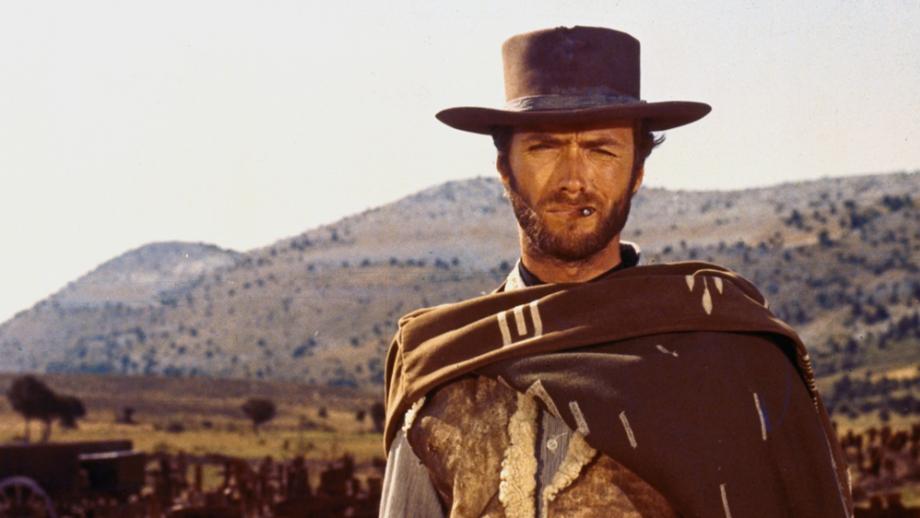
You must be logged in to post a comment.